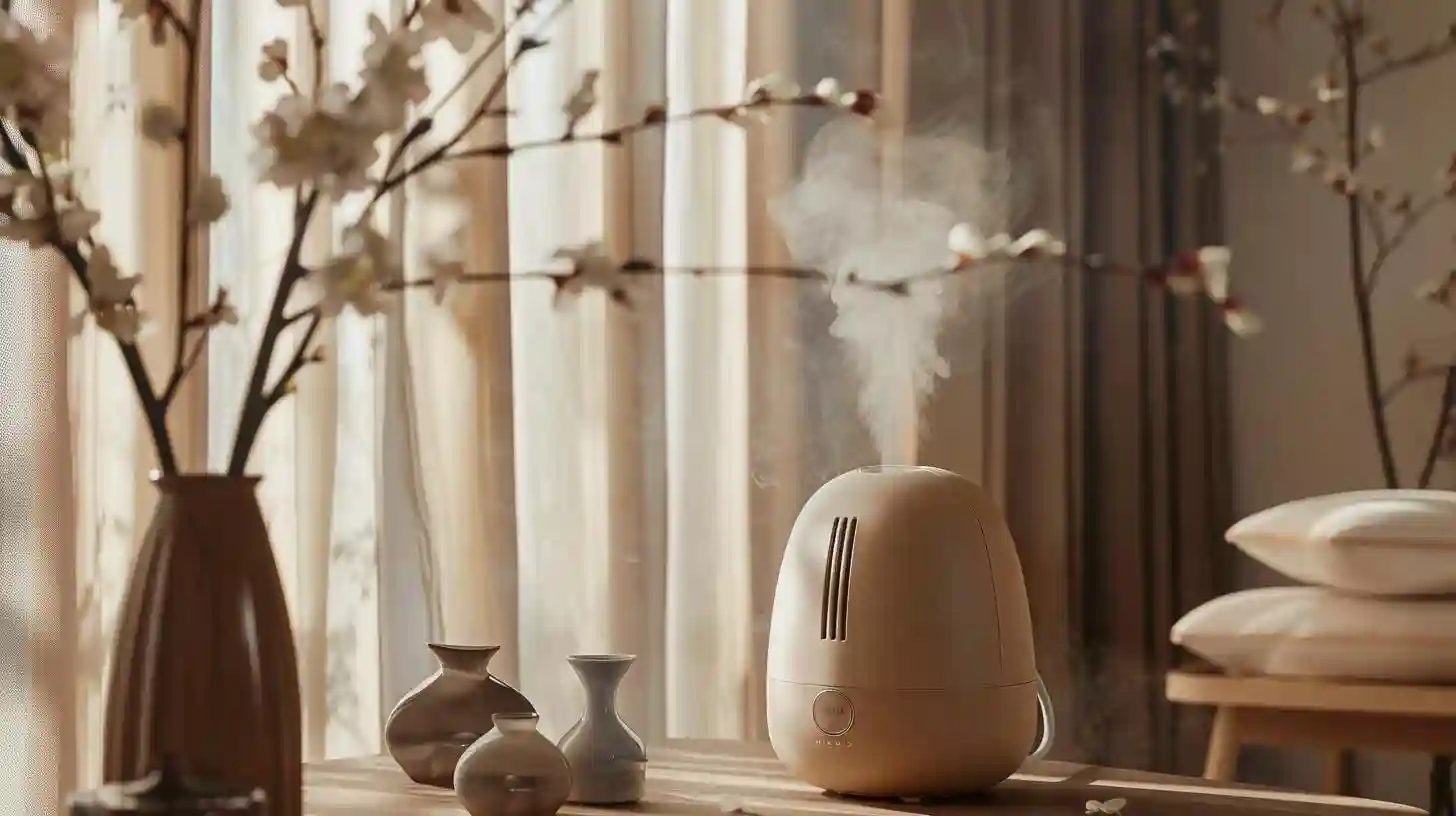
The multifaceted world of humidifiers: functions and disadvantages
In today's age of technology and comfort, maintaining an optimal indoor climate is critical to health and well-being. Among the many devices designed to improve home comfort, humidifiers have gained significant popularity. These devices are especially praised for their ability to humidify the air, a feature that serves multiple purposes. However, like all technological advances, humidifiers have their advantages and disadvantages. This article dives into the multifaceted world of humidifiers, examining their many functions and examining their potential drawbacks.
Humidifier functions
Improved respiratory health
One of the most well-known benefits of humidifiers is their ability to relieve respiratory discomfort. During the winter months or in dry climates, indoor air can become very dry, which can lead to respiratory irritation. Dry air can cause the mucous membranes in your nose and throat to dry out, making them more susceptible to infections. By adding moisture to the air, humidifiers help keep these membranes moist, thereby reducing the risk of respiratory problems.
Increased skin hydration
Dry air can have a negative impact on the skin, leading to dryness, flaking and even worsening conditions such as eczema and psoriasis. Humidifiers can play a crucial role in skin care by maintaining higher levels of humidity in the air, which in turn helps the skin retain its natural moisture. This is especially useful in winter, when space heating systems tend to dramatically reduce humidity levels.
Protection of furniture and wood products
Fluctuations in humidity levels can affect the wood furniture and fixtures in your home. Wood is hygroscopic, that is, it absorbs and releases moisture in relation to the environment. In overly dry conditions, wood can crack, warp, or become brittle. Maintaining a constant level of humidity with a humidifier can help maintain the integrity of wooden items, extend their lifespan and ensure they are in good condition.
Improved sleep
Comfortable sleeping conditions are essential for restful sleep. Dry air can cause discomfort such as a dry throat, nasal congestion, and even snoring, all of which can disrupt sleep. Using a humidifier can alleviate these problems by keeping the air moist, creating a more conducive environment for a good night's sleep.
Improving the health of indoor plants
Houseplants are not only an aesthetic addition to the home, but they also help improve indoor air quality and overall well-being. Many houseplants thrive in humid environments, but dry indoor air can inhibit their growth. A humidifier can help maintain an environment that mimics the natural humidity levels needed by some plants, promoting their growth and health.
Reduce static electricity
Dry air is often accompanied by an increase in static electricity. Static electricity can be a nuisance, from annoying shocks when you touch objects to frizz in your hair. Humidifiers can help mitigate this problem by maintaining optimal humidity levels, thereby reducing the chance of static buildup.
Disadvantages of humidifiers
Despite their many benefits, humidifiers are not without their disadvantages. It is important to consider these potential disadvantages to ensure that their use does not inadvertently cause more harm than good.
Risk of mold and bacteria growth
One of the biggest concerns with humidifiers is the potential for mold and bacteria growth. If your humidifier is not properly cleaned and maintained, the moisture it creates can become an ideal breeding ground for mold and bacteria. These microorganisms can then become dispersed into the air, leading to respiratory illnesses and other health problems. Regular cleaning and using distilled water can help reduce this risk.
Excessive moisture
While increasing the humidity in the air is beneficial, too much humidity itself can create problems. Excessive moisture can leave walls, windows and other surfaces damp, encouraging the growth of mold and mildew. High humidity levels can also attract pests such as dust mites, which thrive in humid environments. It is important to monitor indoor humidity levels to ensure that they remain within the ideal range, usually between 30% and 50%.
Potential for allergens
Increased air humidity can unintentionally spread allergens such as dust mites and pet dander. These allergens thrive in moist environments and can worsen allergy and asthma symptoms. Using a humidifier with a built-in filter can help reduce the presence of these allergens, but it is still important to keep your living environment clean.
Initial and ongoing costs
Although humidifiers are generally affordable, their cost can increase over time. The initial purchase price varies depending on the type and capacity of the humidifier. Additionally, there are ongoing costs associated with maintenance, such as replacing filters and using distilled water to prevent mineral buildup. These costs can add up, so long-term financial obligations need to be considered.
Noise levels
Although modern humidifiers are designed to operate silently, some models can still produce unpleasant noise, especially in quiet rooms such as bedrooms. Noise levels vary depending on the type and brand, so it is important to consider this factor when choosing a humidifier.
Power consumption
Humidifiers, like any electrical appliance, require energy to operate. While they typically don't use a lot of electricity, their constant use, especially in large spaces, can result in higher energy bills. Choosing energy-efficient models and using a humidifier only when necessary can help control energy consumption.
Humidifiers, with their many features, provide numerous benefits that can greatly improve indoor comfort and health. The benefits are vast, from improved respiratory health and skin hydration to protecting wood furniture and improving sleep. However, it is important to be aware of the potential drawbacks, including the risk of mold and bacteria growth, over-humidification, and the presence of allergens. Additionally, factors such as initial and ongoing costs, noise levels and energy consumption are important factors to consider when deciding whether to use a humidifier.
The key to maximizing the benefits of a humidifier and minimizing its disadvantages lies in proper selection, maintenance and control of room humidity levels. By doing this, you can create a healthier and more comfortable living environment that supports overall well-being.